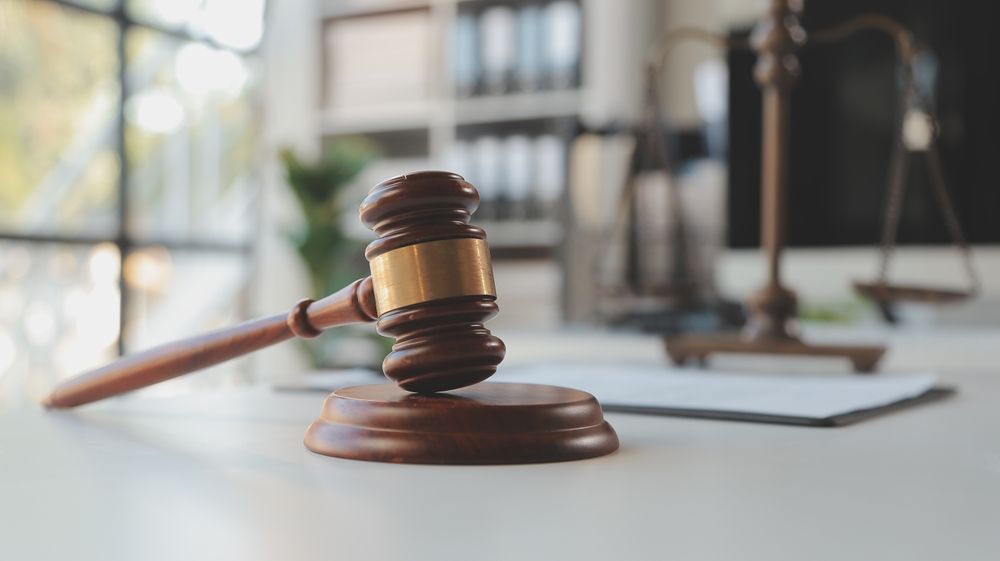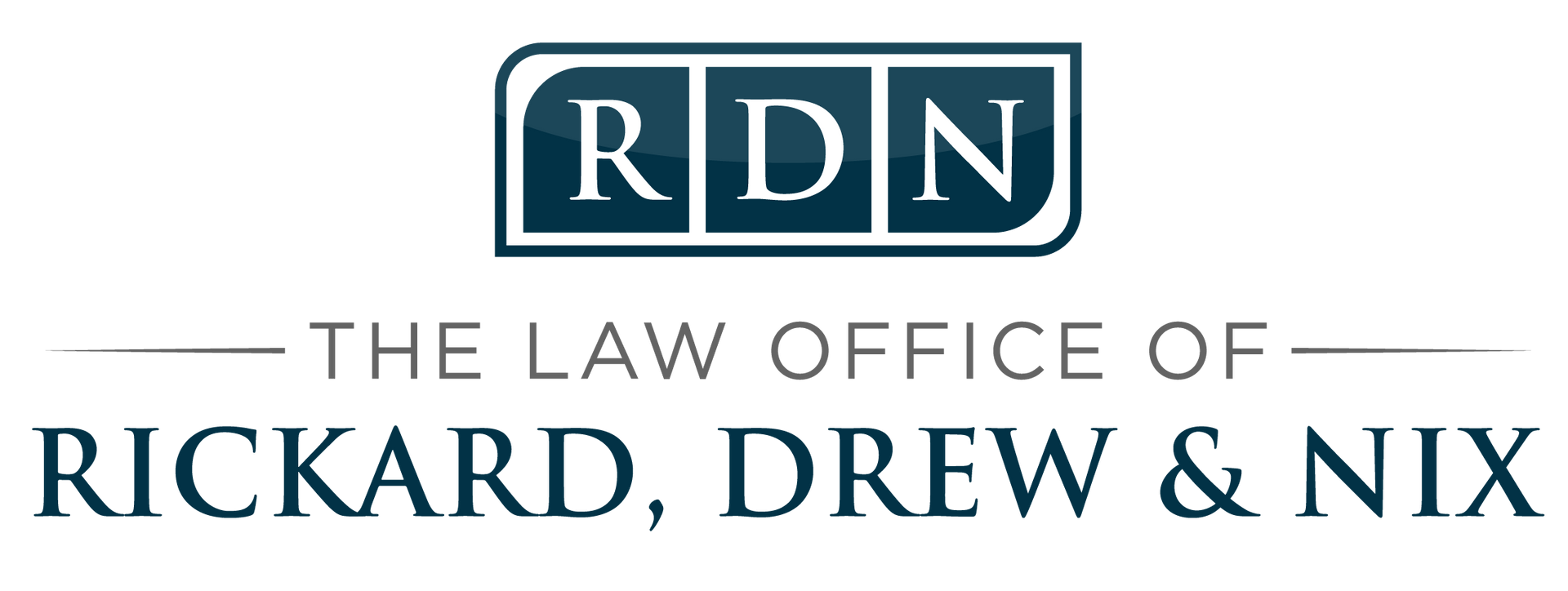Assess Your Insurance Policy Before Hiring a Lawyer
Most of us think that because we have good insurance coverage on our vehicles, we'll have adequate coverage after an accident. A lot of us are wrong. Without updating and checking your coverage regularly, you could be missing vital policy elements that protect you if you get hurt or if your car is totaled. Even worse, some clients get the runaround or a denial of their claim when they do have coverage. When this happens, legal counsel can make all the difference.
In the aftermath of a car accident in Atlanta, it is crucial to understand your auto insurance policy when considering whether you need a car accident lawyer. Your policy's coverage details on car accidents can significantly affect claim outcomes and potential compensation. This article explains how various types of insurance coverage, policy limits, disputes with insurers, and Georgia's at-fault system interact with the decision to hire an attorney.
How Your Auto Insurance Coverage Types Affect Hiring an Atlanta Car Accident Attorney
The first step in evaluating your need for legal help is understanding the different types of auto insurance coverage. Each coverage type, liability, collision, medical payments, uninsured/underinsured motorist (UM/UIM), and comprehensive, plays a role in processing claims and may signal when professional legal guidance is required.
Assessing Liability Coverage in Your Policy
Liability coverage must be high enough to pay for damages beyond what the other driver may cover. It compensates for bodily injury and property damage caused by your fault. Low policy limits can leave you responsible for any excess damages exceeding your coverage, making legal counsel essential to negotiate a fair settlement. Insurance adjusters may also use ambiguous language when assessing liability, so a lawyer can help clarify these details to protect your financial interests.
The Role of Collision Coverage in Your Decision
Collision coverage addresses damages to your vehicle regardless of fault. If your policy does not fully cover repair costs or if disputes arise regarding the payout, retaining a lawyer can help clarify your rights and push for an accurate settlement. Attorneys often review appraisal processes and repair estimates so policyholders are not short-changed.
Understanding Medical Payments (MedPay) Coverage and Attorney Guidance
MedPay is designed to cover medical expenses regardless of fault. In cases of severe injuries, initial MedPay limits might not cover all treatment costs, resulting in out-of-pocket expenses. A car accident lawyer can challenge low MedPay limits, work to document excess expenses, and negotiate with the insurer to secure additional compensation.
When Uninsured/Underinsured Motorist (UM/UIM) Coverage in Your Policy Points to Needing a Lawyer
Uninsured/underinsured motorist coverage protects you when an at-fault driver lacks sufficient insurance. You may face unreimbursed losses if your UM/UIM limits are inadequate or your claim is disputed. Legal intervention becomes necessary when insurers undervalue claims due to vague policy language. An experienced attorney can help secure a fair settlement.
How Comprehensive Coverage Details Might Influence Legal Counsel Choices
Although comprehensive coverage protects against non-collision damages such as theft, vandalism, or natural disasters, disputes may still occur if damage assessments are contested. In cases where comprehensive claims are denied or underpaid, a lawyer can review documentation, verify damage reports, and negotiate a settlement that reflects actual loss.
Policy Limits Your Insurance Sets and Their Bearing on Securing a Car Accident Lawyer in Atlanta
Your policy limits determine the maximum payout for various claims. When these limits are low, you may not receive full compensation for your damages, which can necessitate hiring an attorney to negotiate a better settlement.
Identifying Low Policy Limits: Some Require an Attorney's Intervention
Low policy limits increase the risk of out-of-pocket expenses if damages exceed the stated cap. Insurance companies often set low bodily injury or property damage limits, and a lawyer can analyze your policy and financial risks to advise if additional legal action is needed to recover all losses.
When the maximum payouts in your policy do not reflect the severity of your accident, negotiating with your insurer becomes critical. Attorneys use expert testimony, comprehensive damage estimates, and detailed medical records to argue that the payout should be increased, especially when multiple losses, including lost wages and pain and suffering, are involved.
Multiple Claimants and How Your Policy Limits Can Complicate Matters
In multi-car or multi-party incidents, several injured parties may file claims against a single policy, rapidly exhausting available limits. The cumulative effect of these claims can leave you with significant shortfalls. Legal guidance is imperative to manage negotiations with a comprehensive view of all claims.
When Property Damage Limits in Your Policy Create a Need for Legal Advice
If property damage limits do not cover the full extent of vehicle repairs or replacement costs, you may not be fully compensated. A lawyer can challenge the initial valuations, secure additional repair documentation, and negotiate a settlement that reflects the costs incurred.
Handling Disputes With Your Insurer: How Your Policy Terms Can Lead to Hiring an Atlanta Lawyer
Disputes with your insurer often arise when claim denials or settlement amounts are based on policy terms. Issues such as lowball offers, misinterpretations of contract language, and outright claim denials are common. An experienced attorney can interpret ambiguous language, counter denials, and negotiate fair settlements on your behalf.
Contesting a Denied Claim Based on Your Insurance Policy Wording
When an insurer refuses payment based on specific policy wording, contesting the denial becomes necessary. Legal representation is essential when insurers exploit loopholes or vague language. A lawyer will review internal guidelines and reference precedent cases to overturn wrongful claim denials.
Disagreements Over Fault Determination
Disagreements over fault often emerge from conflicting interpretations of your insurance policy. In comparative negligence scenarios, insurers may deny claims to avoid high payouts. A lawyer can gather evidence, secure expert testimony, and present a strong case if your version of events aligns with the insurer's assessment.
Lowball Settlement Offer: Your Policy and Attorney Assistance
Lowball settlement offers generally reflect the insurer's attempt to minimize financial liability using narrowly interpreted policy language. If you receive a settlement lower than the actual costs incurred, an attorney can negotiate for a higher amount by presenting overlooked evidence and challenging undervalued estimates.
Bad Faith Insurance Practices: Your Policy Rights and Seeking Legal Recourse
Bad faith practices occur when the insurer intentionally underpays, delays, or denies a valid claim, violating the duty of good faith and fair dealing. When such practices are suspected, legal recourse is crucial. An attorney will scrutinize internal communications and contractual obligations to determine whether litigation is necessary.
Ambiguous Language in Your Insurance Policy Necessitates an Attorney's Interpretation
Ambiguous policy language can result in valid claims being denied based on selective interpretations. Hiring a lawyer is critical in such cases, as they can clarify vague terms using legal precedents, so the policy is enforced in a manner that is favorable to the policyholder.
Georgia's at-fault insurance system means that negligence determination directly impacts your claim and may require legal support. With comparative negligence rules placing shared fault among parties, the policy's specific conditions regarding fault become a significant factor in determining compensation.
Your Policy's Stance on Proving Another Driver's Fault in Atlanta
Your policy may require specific evidence or impose conditions to prove that another driver was at fault. In Atlanta, demonstrating fault typically involves detailed accident reports and witness testimonies. If your insurer questions this evidence, legal counsel can help all relevant facts be correctly presented to support your claim.
Comparative Negligence in Georgia's Driver Policy Compensation
Under Georgia's comparative negligence rule, compensation may be based on each party's degree of fault. Insurance policies sometimes include provisions that reduce payouts if you are partly at fault. A lawyer can evaluate these clauses and work to secure a fair compensation allocation that genuinely reflects your accident's circumstances.
How Your Insurance Policy Handles Claims When Fault Is Shared
When fault is shared among multiple parties, claims may be complicated. Policies might reduce individual compensation amounts or impose stricter conditions. Legal professionals can carefully dissect these scenarios, so every party's responsibility is reasonably considered during settlement negotiations.
Gathering Evidence: Your Policy Requirements and an Attorney's Role
Gathering sufficient evidence is critical to substantiate your claim as outlined by your policy. This includes obtaining police reports, photographs, and witness statements. An experienced attorney will coordinate the collection of high-quality evidence, secure expert reviews, and present your case in a way that meets all policy requirements without ambiguity.
Specific Exclusions and Conditions in Your Insurance Policy That May Prompt You to Hire a Car Accident Lawyer
Specific exclusions and conditions noted in your policy, such as unreported accidents or excluded drivers, can lead to uncovered losses. These fine print details may restrict claim eligibility, making it necessary to obtain legal representation to challenge such exclusions.
Identifying Excluded Events or Drivers in Your Auto Policy
Insurance policies often list certain events or drivers that are not covered. Your claim may be denied outright if an accident involves an excluded driver or falls outside the defined coverage. In these cases, a lawyer can help dispute the interpretation or identify loopholes in the exclusion language.
Understanding Policy Conditions for Reporting Accidents and Filing Claims
Strict reporting deadlines and documentation requirements are common policy conditions. Failure to adhere to these conditions can result in claim denial. An attorney with experience in insurance litigation can review these timelines, help gather necessary documentation, and argue for reconsideration of the claim if procedural errors have adversely affected your case.
How Non-Permissive Use Clauses in Your Policy Affect Legal Options
Non-permissive use clauses restrict coverage if the vehicle is used in ways not permitted under the policy, such as commercial use by a private policyholder. If you are found in violation of these clauses, your claim may be denied. Legal counsel can evaluate whether the use was misinterpreted or if mitigating factors exist, thereby opening a pathway to challenge the insurer's decision.
Policy Loopholes Insurance Companies Might Use and Why a Lawyer Becomes Necessary
Insurers can exploit ambiguities or oversights within policy language to minimize or deny valid claims. A lawyer can identify these loopholes and argue against them by referencing legal precedents, so you receive the full benefits you are entitled to.
Making the Call: How Your Insurance Policy Details Guide Your Decision for an Atlanta Car Accident Lawyer
Your insurance policy details directly affect your decision to hire a lawyer by highlighting coverage gaps, ambiguous language, and potential disputes. When potential damages exceed your policy limits or settlement offers seem unfair, consulting with legal counsel is essential to protect your rights and secure just compensation.
Evaluating Injury Severity Against Your Policy's Medical Coverage
Comparing your medical expenses with your policy's coverage limits is vital. Legal intervention is necessary if your injuries are severe and the costs exceed what is covered. An attorney will document the full extent of your injuries, gather expert opinions, and negotiate so the settlement reflects immediate and future medical needs.
Policy Language That Warrants Professional Legal Insight
Deciphering your policy correctly is challenging when it contains complex or technical legal language. A lawyer experienced in insurance disputes can interpret these terms accurately and determine your true rights, so you are not short-changed on compensation.
When Your Insurance Company's Actions Post-Accident Suggest You Need an Advocate
Indicators that need legal representation include delayed responses, inconsistent communication, or recurring lowball offers from your insurer. Such actions may suggest that your claim is being mishandled. A car accident lawyer can intervene, pressuring the insurer to deal in good faith and secure a settlement that accurately reflects your losses.
Long-Term Implications of an Accident Versus Your Policy's Coverage Scope
Long-term effects such as chronic pain, disability, or ongoing emotional distress must be weighed against your policy's limits. If your policy does not account for these factors, retaining an attorney can help capture future losses that might be overlooked. A lawyer can justify a higher compensation award using medical forecasts and expert testimony.
Frequently Asked Questions
Q: How can a lawyer help with disputes over low policy limits?
A: A lawyer can analyze your policy, negotiate with the insurer, and use expert testimony to argue for a settlement that exceeds the preset limits.
Q: What should I do if my insurer denies my medical expense claim?
A: Consult a car accident lawyer to review the denial, gather additional medical evidence, and challenge the decision if the policy conditions were not fairly applied.
Q: When is hiring an attorney based on UM/UIM coverage issues necessary?
A: If you are involved in an accident with an underinsured driver and your UM/UIM coverage does not fully cover all damages, a lawyer can help secure additional compensation through legal channels.
Q: How do ambiguous policy terms affect my claim?
A: Ambiguous language can lead to disputes regarding claim validity; a lawyer can interpret these terms in your favor using legal precedents and detailed analysis.
Q: Will hiring a lawyer increase my overall settlement?
A: Studies show that legal representation can lead to higher settlements by effectively challenging low offers and demanding that all economic and non-economic damages be considered.
Q: How do comparative negligence rules in Georgia impact my claim?
A: Georgia's comparative negligence system may reduce your compensation if you are partially at fault; a lawyer can help establish the extent of your non-fault to maximize recovery.
Q: What long-term effects of an injury should be documented?
A: Chronic pain, ongoing medical treatments, future income loss, and emotional distress must be carefully documented, as they significantly influence long-term compensation negotiations.
Q: What evidence is crucial for proving another driver's fault?
A: Police reports, witness statements, dashcam footage, and expert accident reconstructions are crucial pieces of evidence that a lawyer will compile to support your claim.
Final Thoughts
Understanding every facet of your auto insurance policy is essential when determining whether you should hire a car accident lawyer in Atlanta. Each element plays a role in your financial recovery, from evaluating coverage types such as liability, collision, MedPay, UM/UIM, and comprehensive to scrutinizing policy limits and exclusions. Disputes over ambiguous language or low settlement offers underscore the need for experienced legal representation. Knowing how Georgia's at-fault system interacts with your policy helps quantify the compensation you deserve, especially when long-term injury implications are involved.
For anyone managing an auto accident claim and challenging negotiations with insurance companies, the insights in this article can guide you in making a well-informed decision on whether to retain legal counsel. By thoroughly reviewing your policy details and understanding how they affect claim outcomes, you can protect your rights and secure fair compensation for your injuries and losses. The Law Office of Rickard, Drew & Nix stands ready to offer comprehensive legal advice and representation to safeguard your interests throughout this challenging process.

Attorney Jessica Nix, Managing Partner
Jessica Nix is Managing Partner and a Personal Injury Attorney at the Law Office of Rickard, Drew & Nix in Atlanta, with more than 10 years of experience representing injury victims in courts across Metro Atlanta. She graduated cum laude from the University of Georgia School of Law, where she served as an editor of the Journal of Intellectual Property Law. Jessica is admitted to the State Bar of Georgia, is a member of the Georgia Trial Lawyers Association, and was named a Georgia Super Lawyers Rising Star for Personal Injury from 2017 to 2019. To speak with the Law Office of Rickard, Drew & Nix, schedule a free consultation today.



